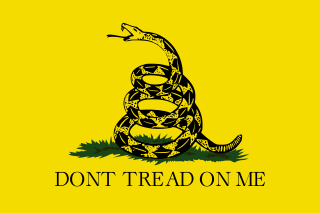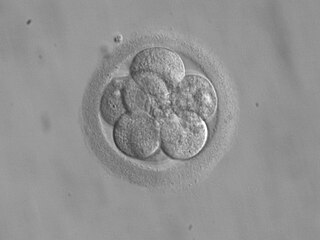
Libertarians promote individual liberty and seek to minimize the role of the state. The abortion debate is mainly within right-libertarianism between cultural liberals and social conservatives as left-libertarians generally see it as a settled issue regarding individual rights, as they support legal access to abortion as part of what they consider to be a woman's right to control her body and its functions. Religious right and intellectual conservatives have attacked such libertarians for supporting abortion rights, especially after the demise of the Soviet Union led to a greater divide in the conservative movement between libertarians and social conservatives. Libertarian conservatives claim libertarian principles such as the non-aggression principle (NAP) apply to human beings from conception and that the universal right to life applies to fetuses in the womb. Thus, some of those individuals express opposition to legal abortion. According to a 2013 survey, 5.7/10 of American Libertarians oppose making it more difficult for a woman to get an abortion.
The abortion debate is a longstanding, ongoing controversy that touches on the moral, legal, medical, and religious aspects of induced abortion. In English-speaking countries, the debate most visibly polarizes around adherents of the self-described "pro-choice" and "pro-life" movements. Pro-choice supporters uphold that individuals have the right to make their own decisions about their reproductive health, and that they should have the option to end a pregnancy if they choose to do so, taking into account various factors such as the stage of fetal development, the health of the woman, and the circumstances of the conception. Pro-life advocates, on the other hand, maintain that a fetus is a human being with inherent rights that cannot be overridden by the woman's choice or circumstances, and that abortion is morally wrong in most or all cases. Both terms are considered loaded words in mainstream media, where terms such as "abortion rights" or "anti-abortion" are generally preferred.

The Unborn Victims of Violence Act of 2004 is a United States law that recognizes an embryo or fetus in utero as a legal victim, if they are injured or killed during the commission of any of over 60 listed federal crimes of violence. The law defines "child in utero" as "a member of the species Homo sapiens, at any stage of development, who is carried in the womb."
Fetal viability is the ability of a human fetus to survive outside the uterus. Viability depends upon factors such as birth weight, gestational age, and the availability of advanced medical care. In low-income countries, more than 90% of extremely preterm newborns die due to a lack of said medical care; in high-income countries, the vast majority of these newborns survive.

An artificial womb or artificial uterus is a device that would allow for extracorporeal pregnancy, by growing a fetus outside the body of an organism that would normally carry the fetus to term. An artificial uterus, as a replacement organ, would have many applications. It could be used to assist male or female couples in the development of a fetus. This can potentially be performed as a switch from a natural uterus to an artificial uterus, thereby moving the threshold of fetal viability to a much earlier stage of pregnancy. In this sense, it can be regarded as a neonatal incubator with very extended functions. It could also be used for the initiation of fetal development. An artificial uterus could also help make fetal surgery procedures at an early stage an option instead of having to postpone them until term of pregnancy.

Gianna Jessen is an American anti-abortion activist. She was born during a failed instillation abortion attempt. The 2011 film October Baby is loosely based on Jessen's life.

The Born-Alive Infants Protection Act of 2002 is an Act of Congress. It affirms legal protection to an infant born alive after a failed attempt at induced abortion. It was signed by President George W. Bush.
Fetal rights are the moral rights or legal rights of the human fetus under natural and civil law. The term fetal rights came into wide usage after Roe v. Wade, the 1973 landmark case that legalized abortion in the United States. The concept of fetal rights has evolved to include the issues of maternal substance use disorders, including alcohol use disorder and opioid use disorder. Most international human rights charters "clearly reject claims that human rights should attach from conception or any time before birth." While international human rights instruments lack a universal inclusion of the fetus as a person for the purposes of human rights, the fetus is granted various rights in the constitutions and civil codes of several countries.
The born alive rule is a common law legal principle that holds that various criminal laws, such as homicide and assault, apply only to a child that is "born alive". U.S. courts have overturned this rule, citing recent advances in science and medicine, and in several states feticide statutes have been explicitly framed or amended to include fetuses in utero. Abortion in Canada is still governed by the born alive rule, as courts continue to hold to its foundational principles. In 1996, the Law Lords confirmed that the rule applied in English law but that alternative charges existed in lieu, such as a charge of unlawful or negligent manslaughter instead of murder.
The philosophical aspects of the abortion debate are logical arguments that can be made either in support of or in opposition to abortion. The philosophical arguments in the abortion debate are deontological or rights-based. The view that all or almost all abortion should be illegal generally rests on the claims that (1) the existence and moral right to life of human beings begins at or near conception-fertilization; that (2) induced abortion is the deliberate and unjust killing of the embryo in violation of its right to life; and that (3) the law should prohibit unjust violations of the right to life. The view that abortion should in most or all circumstances be legal generally rests on the claims that (1) women have a right to control what happens in and to their own bodies; that (2) abortion is a just exercise of this right; and that (3) the law should not criminalize just exercises of the right to control one's own body and its life-support functions.
The proposed Sanctity of Life Act was a bill first introduced in the United States House of Representatives by Rep. Steve Stockman (R-TX) on July 20, 1995, and co-sponsored by Rep. Barbara Cubin (R-WY). It was reintroduced with similar text by Rep. Ron Paul (R-TX) in 2005 in the 109th United States Congress, 110th United States Congress, 111th United States Congress, and the 112th United States Congress. The repeatedly introduced bill sparked advocacy from anti-abortion activists and opposition from abortion-rights activists. The bill has never become law.
In United States politics, the Freedom of Choice Act was a bill which sought to codify into law for women a "fundamental right to choose to bear a child; terminate a pregnancy prior to fetal viability; or terminate a pregnancy after viability when necessary to protect her life or her health". It sought to prohibit a federal, state, or local governmental entity from denying or interfering with a woman's right to exercise such choices; or discriminating against the exercise of those rights in the regulation or provision of benefits, facilities, services, or information. Provides that such prohibition shall apply retroactively. It also authorizes an individual aggrieved by a violation of this Act to obtain appropriate relief, including relief against a governmental entity, in a civil action".

The beginning of human personhood is the moment when a human is first recognized as a person. There are differences of opinion as to the precise time when human personhood begins and the nature of that status. The issue arises in a number of fields including science, religion, philosophy, and law, and is most acute in debates relating to abortion, stem cell research, reproductive rights, and fetal rights.

A Child Is Born is a 1965 photographic book by Swedish photojournalist Lennart Nilsson. The book consists of photographs charting the development of the human embryo and fetus from conception to birth; it is reportedly the best-selling illustrated book ever published. Nilsson's photographs are accompanied by text, written by doctors, describing prenatal development and offering advice on antenatal care. The images were among the first of developing fetuses to reach a wide popular audience. Their reproduction in the April 30, 1965, edition of Life magazine sparked so much interest that the entire print run of eight million copies sold out within four days; they won Nilsson the American National Press Association Picture of the Year award, and reached a sufficiently iconic status to be chosen for launch into space aboard the NASA probes Voyager 1 and Voyager 2. The book and its images have figured in debates about abortion and the beginning of life, and the book is the subject of a substantial body of feminist critique.
Personhood is the status of being a person. Defining personhood is a controversial topic in philosophy and law and is closely tied with legal and political concepts of citizenship, equality, and liberty. According to law, only a legal person has rights, protections, privileges, responsibilities, and legal liability.

Born alive laws in the United States are fetal rights laws that extend various criminal laws, such as homicide and assault, to cover unlawful death or other harm done to a fetus in utero or to an infant that has been delivered. The basis for such laws stems from advances in medical science and social perception, which allow a fetus to be seen and medically treated as an individual in the womb and perceived socially as a person, for some or all of the pregnancy.
Evictionism is a moral theory advanced by Walter Block and Roy Whitehead on a proposed libertarian view of abortion based on property rights. This theory is built upon the earlier work of philosopher Murray Rothbard who wrote that "no being has a right to live, unbidden, as a parasite within or upon some person's body" and that therefore the woman is entitled to eject the baby from her body at any time. Evictionists view a woman's womb as her property and an unwanted fetus as a "trespasser or parasite", even while lacking the will to act. They argue that a pregnant woman has the right to evict a fetus from her body since she has no obligation to care for a trespasser. The authors' hope is that bystanders will "homestead" the right to care for evicted babies and reduce the number of human deaths. They argue that life begins at conception and state that the act of abortion must be conceptually separated into the acts of:
- the eviction of the fetus from the womb, and
- the dying of the baby.
Abortion in Illinois is legal. Laws about abortion dated to the early 1800s in Illinois; the first criminal penalties related to abortion were imposed in 1827, and abortion itself became illegal in 1867. As hospitals set up barriers in the 1950s, the number of therapeutic abortions declined. Following Roe v. Wade in 1973, Illinois passed a number of restrictions on abortion, many of which have subsequently been repealed. Illinois updated its existing abortion laws in June 2019. The state has seen a decline in the number of abortion clinics over the years, going from 58 in 1982 to 47 in 1992 to 24 in 2014.

The Born-Alive Abortion Survivors Protection Act is a proposed United States law that would penalize healthcare practitioners who fail to provide care for an infant that is born-alive from an abortion attempt. It was introduced in the 114th, 115th, 116th, 117th, and 118th Congresses.

Terrisa Lin Bukovinac is an American anti-abortion activist. A member of the Democratic Party, she formerly served as president of Democrats for Life of America and is currently a candidate for the Democratic nomination for president of the United States in the 2024 United States presidential election, with the intent of running a campaign to outlaw abortion. She is a subject of the 2022 documentary film Battleground which profiles three leading women in the anti-abortion movement.








